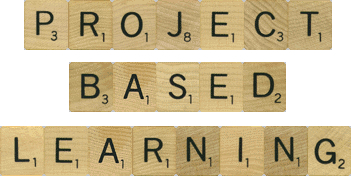Learning Differences:
Our Approach
Learning Differences: Our Approach
We celebrate your child’s unique way of being and learning! We welcome gifted students and twice-exceptional students with learning differences/challenges/disabilities, such as: dyslexia, ADHD/hypermobile, sensory processing challenges, vision challenges, dysgraphia, dyscalculia, chemical sensitivity and allergies, Asperger’s/High Functioning autism, anxiety, or social difficulties. Our focus is on nurturing your child’s tremendous strengths and talents while providing research-based support for the lagging skills that learning differences, challenges, and disabilities can create.
What Parents Are Saying:
What Students Are Saying:
- Passion-based learning support for lagging skills. This means that we get to know what makes your child tick, his passions, and use those as a door to developing lagging skills. We focus on “just-right” challenges that are just beyond a student’s current skill level. For example, a child with dysgraphia might build hand strength by tracing his favorite dinosaurs and then write about them. A child with ADHD might learn math by balancing on a balance board or making a song and dance to help him memorize since movement activates focusing ability. A child with anxiety and perfectionism will learn how to break down tasks into tiny chunks and learn concrete skills to defuse the fear behind the perfectionism, for example.
- Support for uneven learning in different subjects, skills, and social-emotional learning. We understand that kids, especially, 2e and gifted learners, have uneven development across subjects and skills. We meet your child where he’s at. For example, a learner may have a ninth-grade vocabulary but not know how to write a paragraph expressing his thoughts using that vocabulary. A student may know how to discuss advanced subjects very well but needs guided support with how to take turns in maintaining a social conversation, for example.
- Project-Based Learning
- Portfolio-Based Assessment
- Mastery Shown in a Way That Matches Your Child’s Strengths: Mastery is shown in a format that matches the learner’s strengths (e.g. oral or project-based demonstration of mastery for students with dysgraphia; activity-based project mastery for student needing to move, etc.) while encouraging growth in areas of lagging skills.
- Social-Emotional Learning to promote self-regulation, relationship-building, and becoming your own “self-scientist,” and personal growth through tribe-building activities, class meetings, and targeted social-emotional learning integrated into daily interactions.
- Sensory-Friendly Environment. Here are just a few examples of ways that Great Minds Learning Community’s learning environment accommodates sensory processing challenges and Dabrowski’s “Overexcitabilities” in gifted and 2e learners (To learn more about overexcitabilities, visit: http://sengifted.org/overexcitability-and-the-gifted/):
- Touch-screen Chromebooks provide options for students who prefer touching the screen instead of typing out answers on the keyboard
- Active Learning Stools designed for energetic learners, allowing range of movement without disrupting others.
- Headsets can be worn if students are hypersensitive to noise.
- Sensory tents provide a calming space.
- Berkey filtered water removes pathogenic bacteria, cysts and parasites and reduces harmful chemicals such as herbicides, pesticides, and VOCs without removing the beneficial minerals your body needs.
- LED lights only — no fluorescent or CFL to minimize headaches and maximize attention.
- No perfumes, colognes, or strong fragrances to minimize chemical sensitivity that distracts from learning.
- Gradeless environment to decrease anxiety and focus on mastery.
- IQ Air best-in-class air and chemical filtration. (Filters Ultrafine particles to .003 microns and is up to 100X more effective than standard HEPA.)

